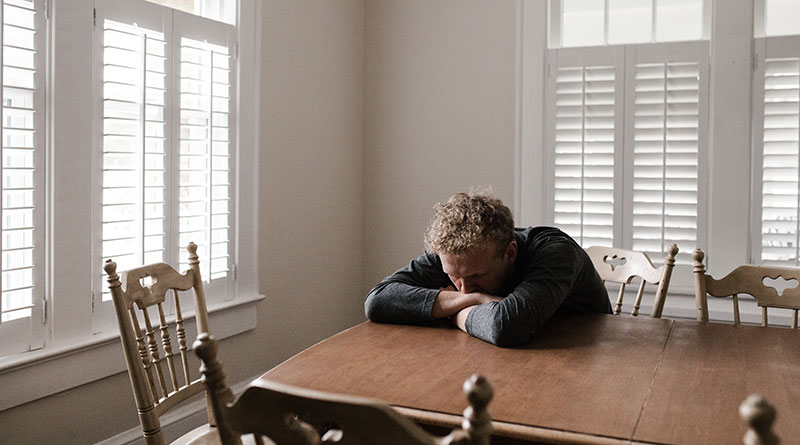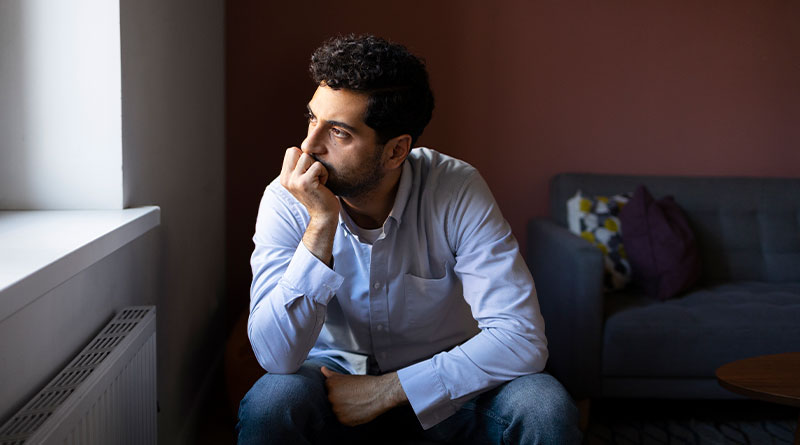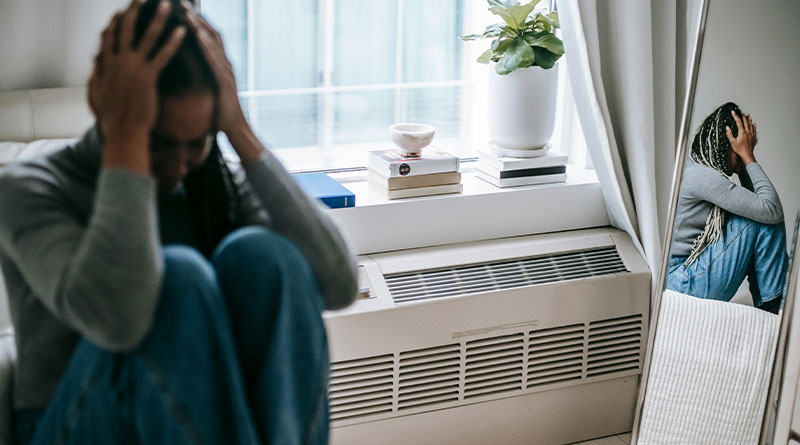Anxiety is one of the most common mental health disorders in the United States and around the world.
According to the Anxiety and Depression Association of America, anxiety disorders affect more than 40 million adults in the United States alone. While every one out of every five American adults experiences symptoms of an anxiety disorder each year.
While there are several different types of anxiety, these disorders can impact people in similar ways, resulting in common symptoms such as nervousness, constant worrying, and fear that disrupt daily life.
Luckily, several treatment methods exist to help people overcome their anxiety and regain control over their lives. In this article, we will discuss briefly anxiety, its types, causes, symptoms, and treatments.
What is Anxiety?
Anxiety is a normal part of life, and everyone experiences it at some point or another. It is the body’s natural response to stress or fear, and it can help alert us to potential danger or help us perform better in certain situations. Anxiety can range from mild feelings of unease to a severe, debilitating condition.
Although anxiety is a normal emotion, it can become a problem if it gets in the way of everyday activities. People with anxiety may feel uneasy and overwhelmed, or they may struggle with feelings of panic or fear.
Types of Anxiety
There are several different types of anxiety, each with its own unique set of symptoms and causes. The most common types of anxiety include generalized anxiety disorder (GAD), panic disorder, social anxiety disorder, phobias, and obsessive-compulsive disorder (OCD).
Generalized Anxiety Disorder (GAD)
GAD is characterized by excessive worry and fear about everyday situations and activities. People with GAD often feel tense, and on edge, and experience difficulty concentrating and sleeping. Panic disorder involves frequent and intense panic attacks or periods of extreme fear.
Social Anxiety
In social anxiety disorder, people are intensely afraid of social situations. People with social anxiety disorder often fear judgment or embarrassment and may avoid social situations altogether.
Phobia
Phobias are excessive fears relating to a certain object or event that have no logical reasoning. Examples of common phobias include fear of heights (acrophobia), fear of animals (zoophobia), fear of flying (aerophobia), and fear of needles (trypanophobia).
Obsessive-Compulsive Disorder (OCD)
OCD is an anxiety disorder that involves unwanted intrusive thoughts (obsessions) and rituals or compulsions that are performed in response to these thoughts.
If you believe you may be suffering from one of the types of anxiety mentioned above, it is crucial to seek professional help.
Causes of Anxiety
There are many potential causes of anxiety, including genetics, the environment, lifestyle, and physical health.
Genetics
Genetics can play a role in anxiety as some people may be more prone to anxiety disorders than others due to their genetic makeup. Research suggests that the environment in which a person grows up can also influence their risk of developing anxiety, such as exposure to trauma or stress during childhood.
Lifestyle
Lifestyle factors can contribute to anxiety as well. Stressful life events, work pressures, and relationship problems can all increase levels of stress. People who suffer from chronic medical conditions may also experience increased levels of anxiety due to the uncertainty of their health and the potential complications that may arise. Substance use and withdrawal can also trigger anxiety.
Physical Health
Finally, physical health can also contribute to anxiety. Studies have shown that hormone imbalances, nutritional deficiencies, and sleep deprivation can lead to anxiety symptoms. Chronic pain or illness can also exacerbate feelings of worry and fear.
It is essential to recognize the causes of your anxiety so that you can work towards treating it.
Symptoms of Anxiety
Anxiety can manifest itself in many different ways. Common symptoms include;
- Feeling overwhelmed
- Having difficulty concentrating
- Nausea
- Sweating
- Trembling
- Increased heart rate
- Blurred vision
Other common signs of anxiety include difficulty sleeping, excessive worrying, restlessness, irritability, feeling tense or on edge, and difficulty controlling worrying thoughts.
These symptoms may mean you need to see your doctor, mental health professional, or both. They can help diagnose your condition and provide treatment to help manage your symptoms.
Also Check: All You Know About Depression
Treatment of Anxiety
Anxiety can be treated through a variety of methods, including medication, lifestyle changes, and therapy. For those dealing with mild or moderate symptoms of anxiety, lifestyle changes such as exercise, improved sleep habits, and stress management techniques can be beneficial.
If symptoms are more severe, medications may be prescribed to help manage anxiety. Therapies can also lower anxiety. Cognitive behavioral therapy (CBT) is one of the most widely used therapies for treating anxiety and can provide individuals with the tools they need to effectively manage their symptoms.
Medications that may be prescribed include selective serotonin reuptake inhibitors (SSRIs), benzodiazepines, tricyclic antidepressants, and MAOIs. SSRIs are considered to be the most effective medication for treating anxiety disorders, as they tend to have fewer side effects than other medications. Benzodiazepines are usually reserved for those experiencing severe symptoms of anxiety and are best used for short-term relief.
What to Consider While Seeking Treatment?
When seeking treatment for anxiety, it is vital to find a provider who is knowledgeable about the different types of anxiety disorders and has experience in treating them.
It is also essential to have realistic expectations about the treatment process and to be open and honest with your provider. With proper treatment and management, anxiety can be effectively managed, allowing individuals to lead more productive and fulfilling lives.
Can Anxiety Go Away By Itself?
When it comes to anxiety, it is important to understand that the answer to this question is both yes and no. In some cases, anxiety can dissipate on its own with no intervention or treatment, while in other cases, it can persist and worsen without proper medical attention.
One of the key factors in determining whether anxiety will go away on its own is understanding what type of anxiety you have. Generally, anxiety can be classified into two main types: acute and chronic.
Acute Anxiety
Acute anxiety usually refers to a short-term response to stress and is considered a normal part of everyday life.
Chronic Anxiety
On the other hand, chronic anxiety is a more persistent state of fear and worry, and requires medical attention.
For acute anxiety, the symptoms tend to go away on their own once the stressful situation has passed. If the situation is ongoing, however, the symptoms may continue for a longer period of time.
When it comes to chronic anxiety, it is unlikely that it will go away on its own and instead may get worse over time without treatment. If you are experiencing any persistent feelings of worry, fear, or panic, it is important to reach out to your doctor or mental health professional for help.
Sahil Sachdeva is the Founder of curemedoc.com and a Digital Marketing professional with years of experience. If you need help in Content writing and want to increase your website ranking, connect with him, as he has some premium websites where you can share blogs with DoFollow links and increase your website’s ranking on Google.





